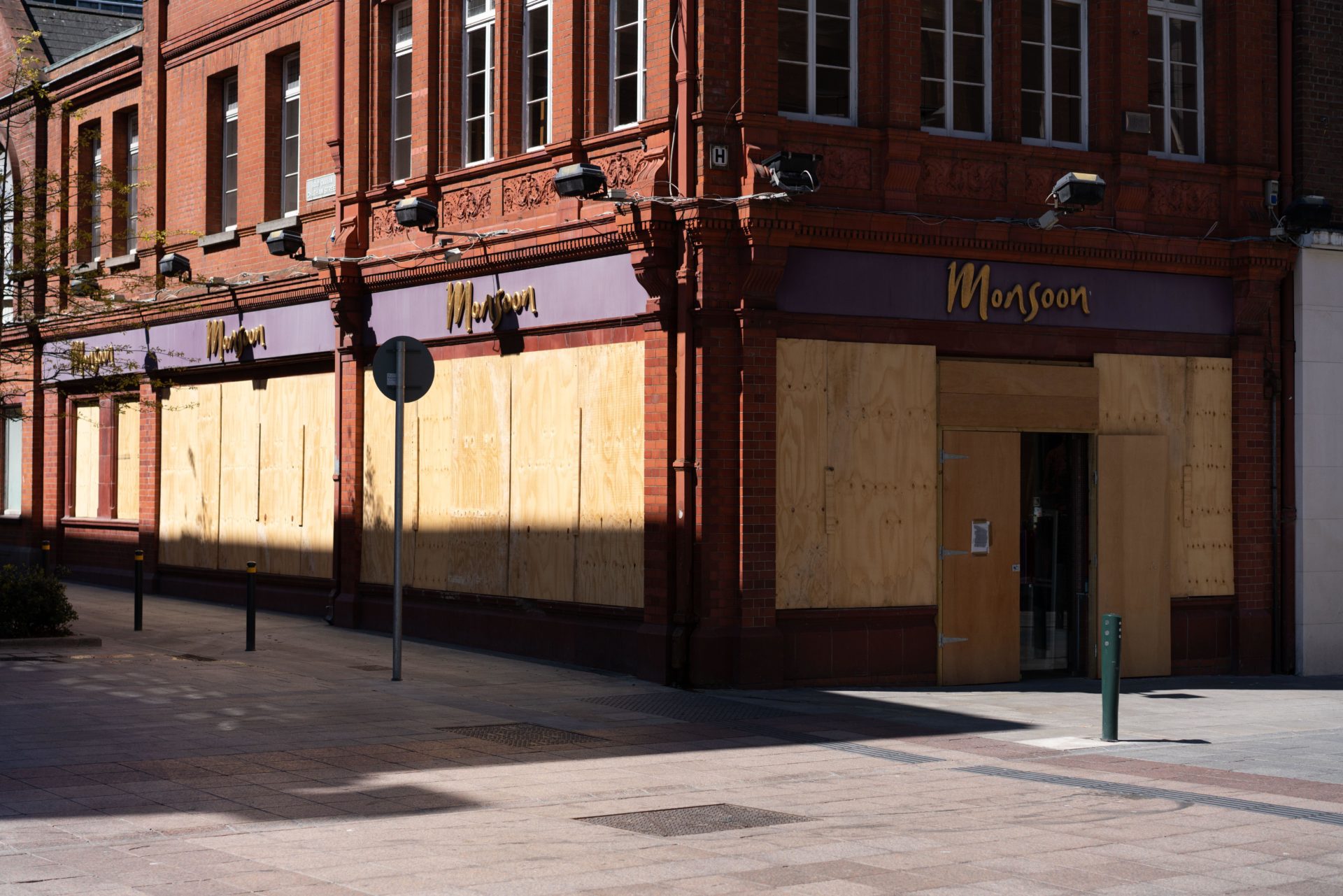Disadvantaged areas experienced higher levels of employment disruption during the pandemic than affluent areas, a study by the ERSI and Pobal has found.
Pobal CEO Anna Shakespeare said the findings were likely because people in deprived areas often work manual jobs that cannot be performed at home.
“This [statistic] may be due to the reduction and closure of operations in industries and sectors which were affected to the greatest extent by public health measures and that those in deprived areas are more likely to work in,” she said.
The study also found that while Pandemic Unemployment Payment (PUP) rates were higher in deprived parts of the country than wealthier parts, the number of people claiming the PUP decreased more rapidly in deprived areas.
 Boarded up businesses in Dublin.
Boarded up businesses in Dublin.This, ERSI believes, could be attributable to wealthy people having more discretion about when they return to work.
The report’s author, Dr Adele Whelan of the ERSI, said politicians should carefully note its findings “if future events necessitate lockdown policies.”
The PUP was introduced in March 2020 to help people who lost their job due to the COVID-19 pandemic.
Initially, the maximum rate was set at €350 per week but it was gradually reduced by €50 increments starting in September 2021.
The PUP came to an end in March 2022 and recipients began to receive the standard jobseekers’ allowance payment of €208 per week.
Main image: Lockdown in Dublin. Picture by: Alamy.com









